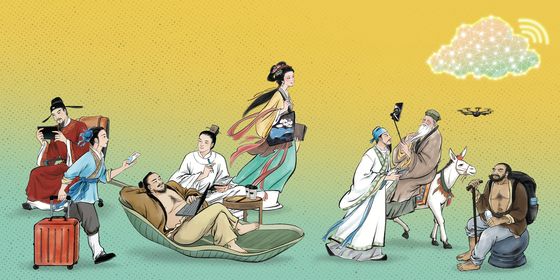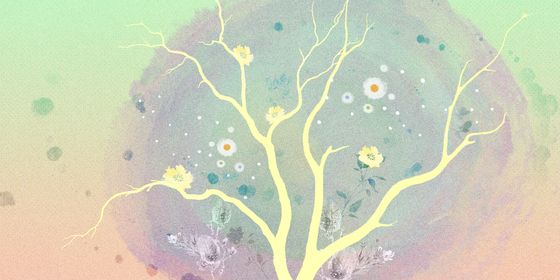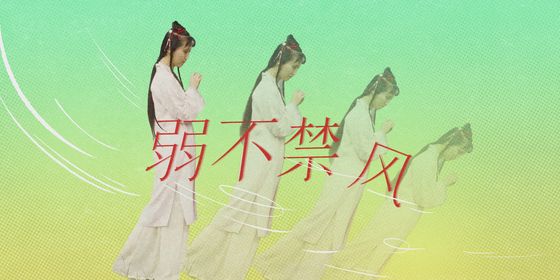Generous idioms about giving gifts and favors
As the end of the year approaches, the season of gift-giving has begun. Whether it’s a Christmas surprise, a company bonus, or a red envelope stuffed with cash, everyone likes getting a special reward for nothing.
In ancient China, the giving and receiving of presents was fraught with rules of etiquette. The exchange of objects could solidify political alliances, seal betrothals and marriages, and signal respect or goodwill for one’s friends, allies, and hosts. Certain gifts had special meaning when presented between lovers, or by a vassal state to the emperor, and many sayings developed around the giving of gifts and assistance:
雪中送炭 xuězhōng-sòngtàn
Sending charcoal in the snow
There are two explanations for the origin of this chengyu, which refers to helping people in their hour of need. One relates to Emperor Taizong of the Song dynasty (960 – 1279), who was well-known for his concern for commoners. One winter, as the emperor huddled in his toasty palace in the middle of a snowstorm, he thought of his people, and sent rice and charcoal to all the poor families and elderly people who lived alone in the city.
The other explanation says the idiom comes from the the Southern Song dynasty (1127 – 1279) poem “Sending Charcoal to Jie Yin in a Snowstorm,” in which poet Fan Chengda (范成大) describes how he found an excuse to visit an absent friend: “It’s not that I needed to send you charcoal in the snow/ But I wanted to write poems together with you (不是雪中须送炭,聊装风景要诗来 Bú shì xuě zhōng xū sòng tàn, liáo zhuāng fēngjǐng yào shī lái).”
Real friends are those who help you during the most difficult times.
Zài nǐ zuì kùnnán de shíhou néng wéi nǐ xuězhōng-sòngtàn de rén cái shì zhēnzhèng de péngyǒu.
在你最困难的时候能为你雪中送炭的人才是真正的朋友。
雨后送伞 yǔhòu-sòngsǎn
Sending an umbrella after the rain
Unlike charcoal in a snowstorm, an umbrella becomes pretty useless if it has already stopped raining. Therefore, this chengyu refers to help that is offered only after it is no longer needed.
His sending help after the fact is a sign of false friendliness.
Tā yǔhòu-sòngsǎn de xíngwéi zhǐ shì biǎomiàn rèqíng.
他雨后送伞的行为只是表面热情。
投桃报李 tóutáo-bàolǐ
Giving a plum in exchange for a peach
Gift-giving is a two-way street—and this chengyu, which comes from a verse in the Classic of Poetry, describes a solid and reciprocal friendship in which the parties give each other gifts or favors in return for those they receive.
Thanks for treating me. I will definitely reciprocate at our next meal.
Xièxie nǐ qǐngkè, wǒ huì tóutáo-bàolǐ, xià yí dùn yídìng yào qǐng nǐ.
谢谢你请客,我会投桃报李,下一顿一定要请你。
投木报琼 tóumù-bàoqióng
Giving jade in exchange for a quince
This chengyu originally referred to gifts given between lovers. It derives also from a passage in the Classic of Poetry, which describes a man and a woman exchanging these objects to confirm their betrothal. The saying has since evolved into a more general description for a deep affection or friendship.
千里送鹅毛 qiānlǐ sòng émáo
Swan feather sent a thousand li
A good gift isn’t defined by its size, but the sincerity of the affection it expresses. This rare five-character chengyu, which literally refers to sending a trifling object over a long distance, describes a small yet cherished present. It comes from a legend about Mian Bogao (缅伯高), a diplomat of the Tang dynasty (618 – 907) who was sent on a mission to the Uyghur Kingdom on the western frontier. The Uyghur king sent Mian back with a rare white swan as a gift to the Tang emperor, but on their way home, the swan flew away, leaving Mian with just a feather.
Not to be daunted, the clever diplomat presented the feather to the emperor with a poem about how he had desperately tried but failed to catch the swan, ending with the line, “ The gift is small, but the gesture is sincere/ A swan feather sent over a thousand li (礼轻人义重,千里送鹅毛 Lǐ qīng rényì zhòng, qiānlǐ sòng émáo).”
野人献芹 yěrén xiàn qín
Celery presented by a barbarian
This chengyu is similar to the above, describing the act of presenting a cheap object as a valuable gift. It is usually spoken by the gift-giver to show modesty—a reminder to the receiver not to make too much of such a humble present.
This small gift is but a trifle to show my feelings.
Zhè yìdiǎn xiǎo lǐwù zhǐ néng suànshì yěrén xiàn qín, biǎodá wǒ de xīnyì.
这一点小礼物只能算是野人献芹,表达我的心意。
Cover image from VCG












